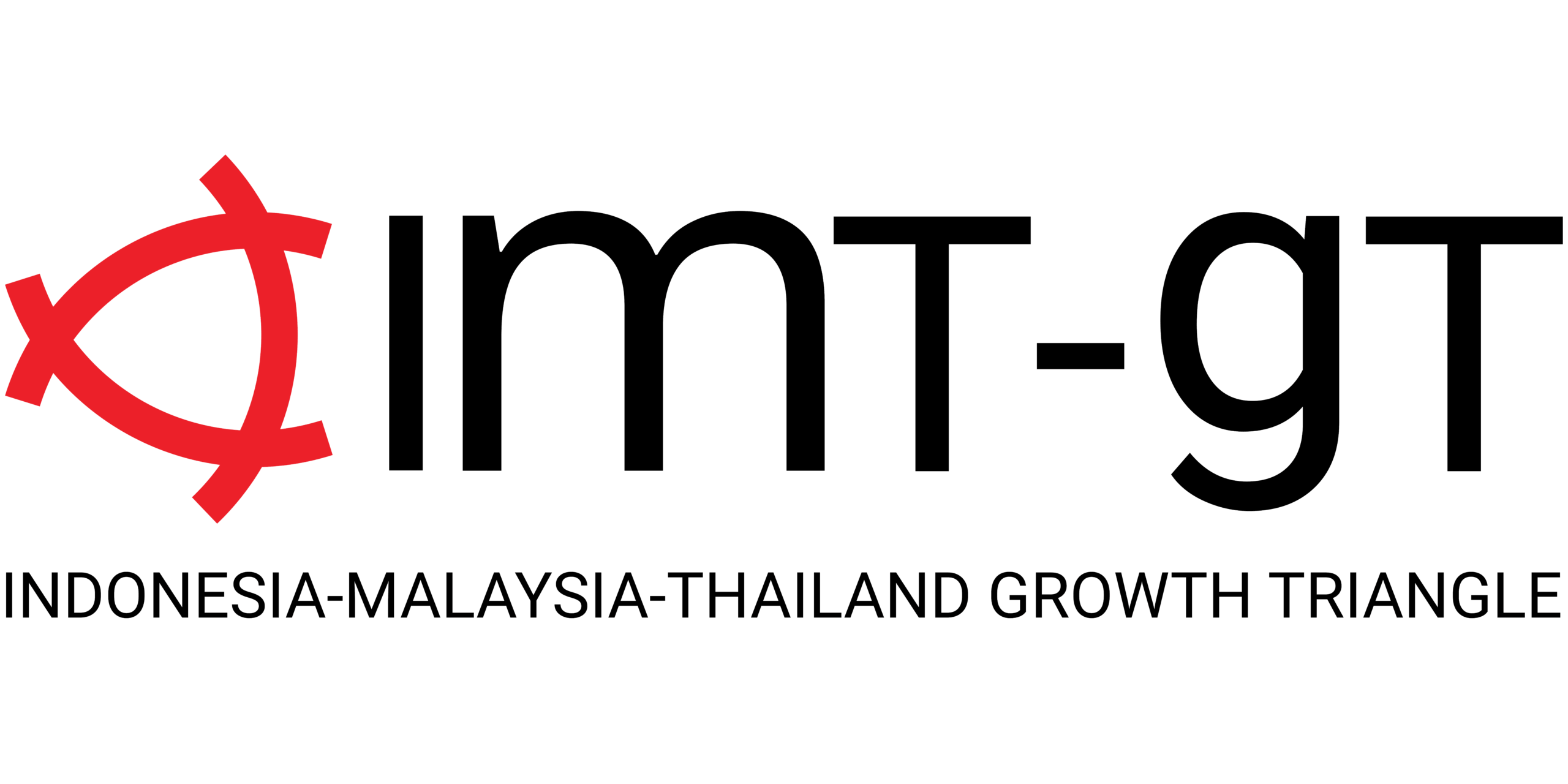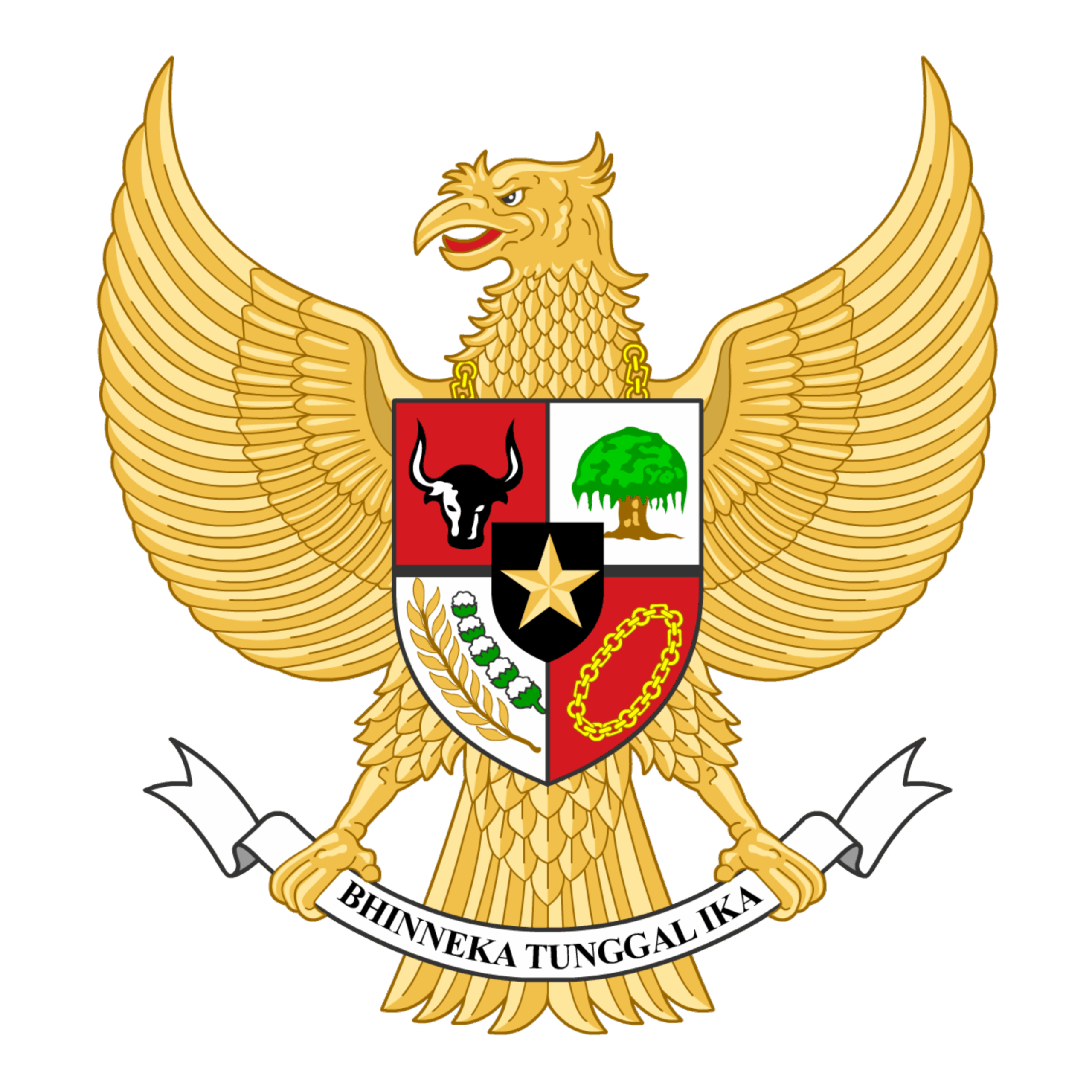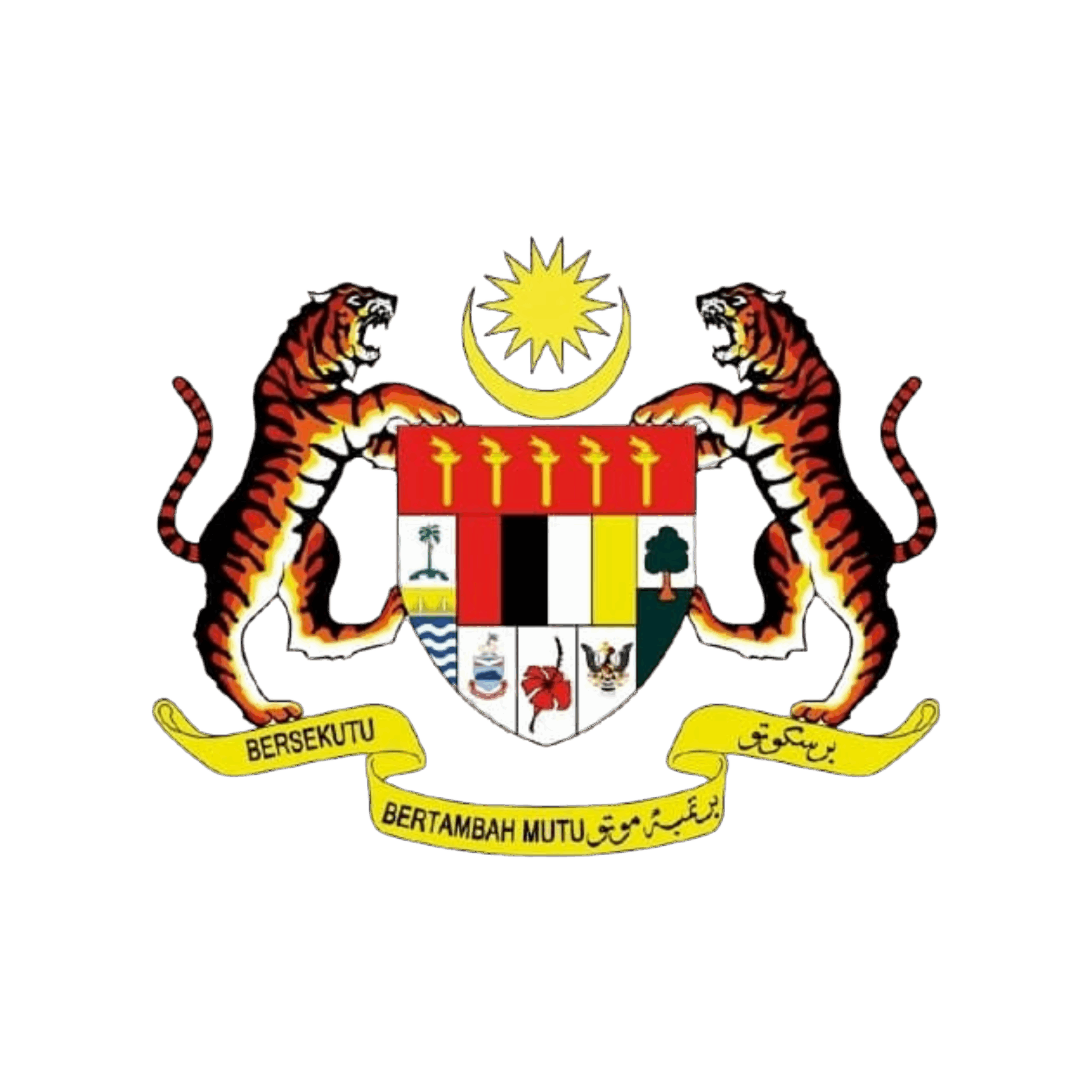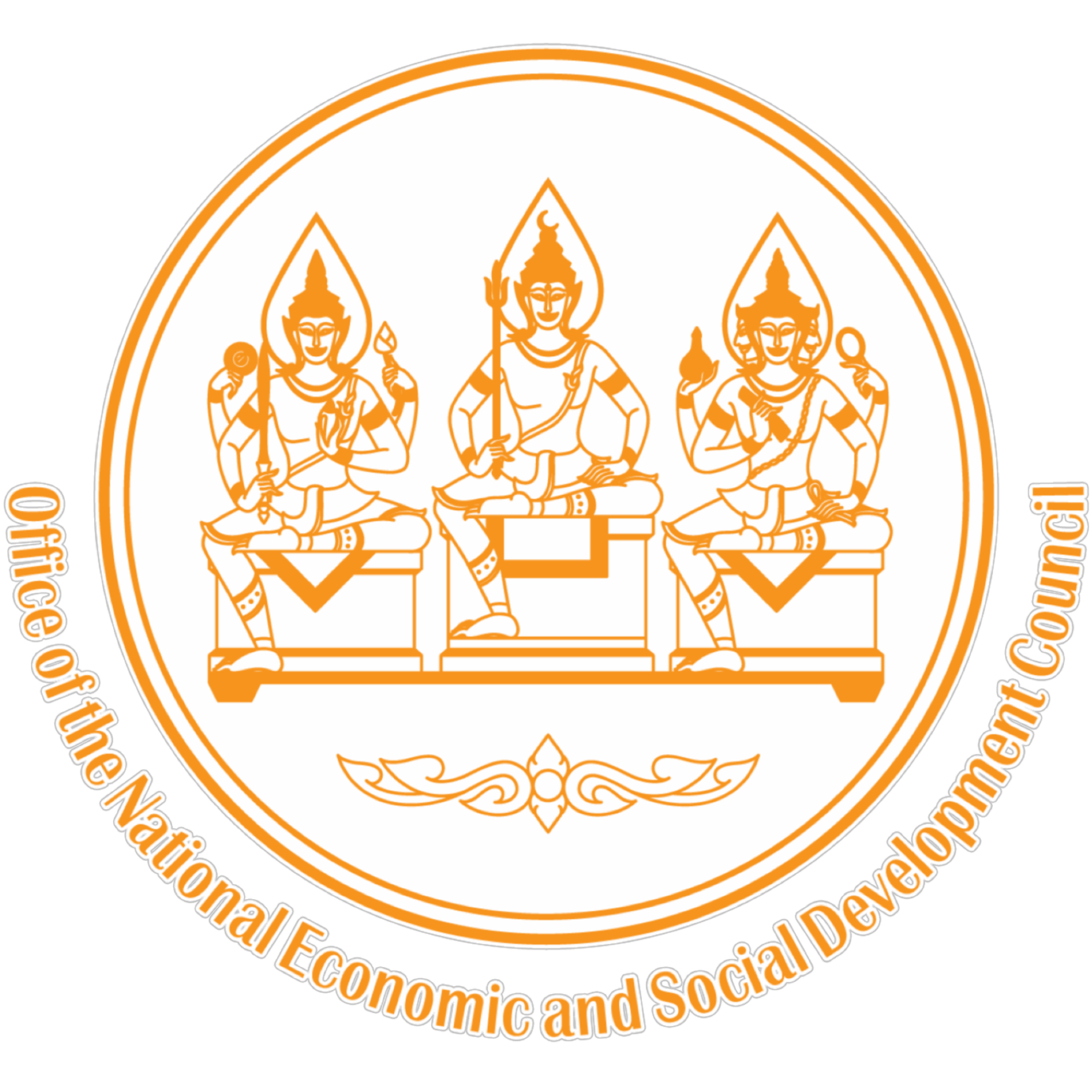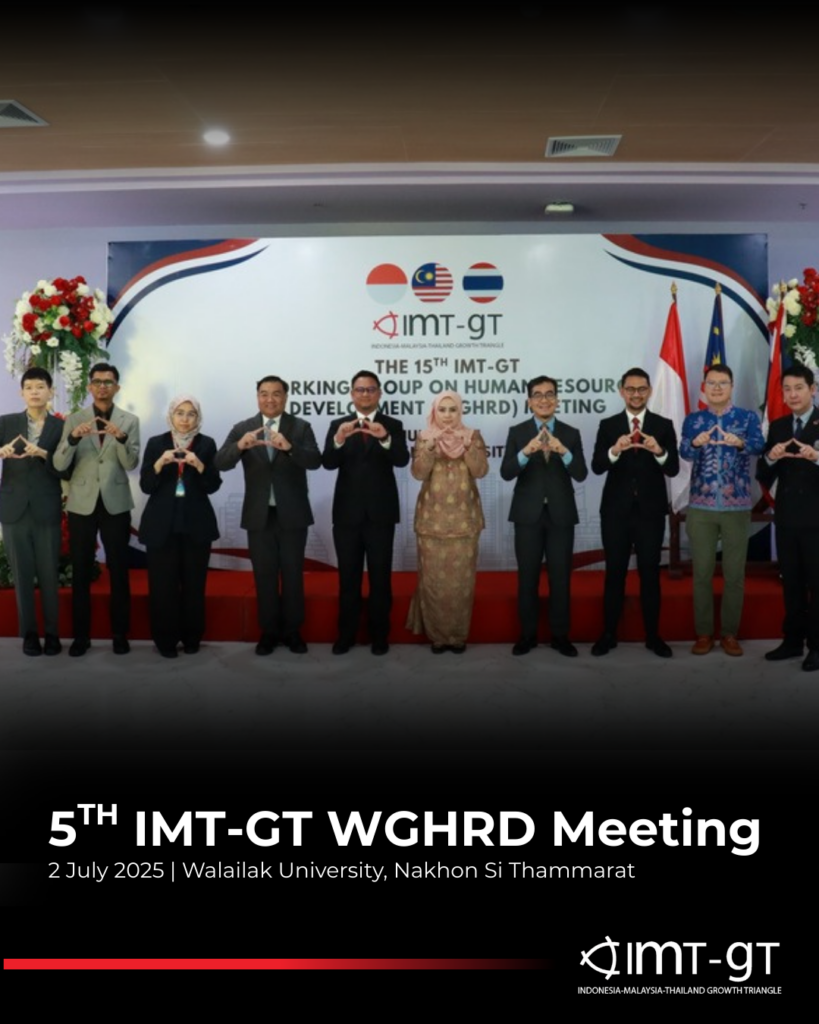
2 & 3 July 2025—The Indonesia-Malaysia-Thailand Growth Triangle (IMT-GT) took a significant step forward in fostering regional human capital development and cultural exchange through the 15th Working Group on Human Resource Development (WGHRD) Meeting, hosted in Nakhon Si Thammarat, Thailand.
On 2 July, delegates from member countries, the Centre for IMT-GT Subregional Cooperation (CIMT), the Joint Business Council (JBC), and the University Network (UNINET) engaged in strategic dialogue to strengthen cooperation in workforce development, labor mobility, and future-focused human capital planning.
Key highlights from the meeting include:
- Consensus on priority development sectors, namely artificial intelligence, digital technology, renewable energy, semiconductors, smart farming, and services.
- A proposal by UNINET for the development of a Labour Market Information (LMI) Dashboard to enable data-driven workforce planning.
- Support for joint micro-credential initiatives to enhance cross-border skill recognition.
A discussion on elevating the role of the JBC through public awareness initiatives and capacity-building support for SMEs.
The meeting reaffirmed the subregion’s commitment to building a skilled, mobile, and resilient workforce in alignment with IMT-GT Vision 2036.
On 3 July, the delegation visited Ban Laem Traditional Tourism Village, a culturally rich and harmonious Muslim community in Nakhon Si Thammarat. The visit offered participants a first-hand experience of local traditions and community-led development.
Highlights from the cultural exchange included:
- A performance of traditional Likay Hulu dance
- Tom Yum Goong and Teh Tarik workshops
- Bahasa Melayu language training
- Mangrove propagation activities and mud spa treatments
The visit showcased Ban Laem’s model of inclusive and sustainable community-based tourism, reflecting IMT-GT’s shared vision of heritage preservation and people-centered development across borders.
